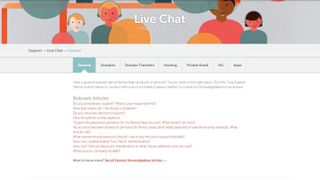With a name like Namecheap, you know right from the start that low prices and value will be this web host’s main selling points. However, the company is also an ICANN-accredited registrar which provides domain name services.
The company was founded back in the year 2000 by Richard Kirkendall and it first set itself apart from the crowd by offering value-priced domains and excellent customer service. Today Namecheap is the world’s 3rd largest web hosting service provider by market share and the company has over 11 million registered users with 10 million domains.
Is this budget web host the right choice for your website? Let’s take a closer look at the plans, pricing and features offered by Namecheap to see if the company lives up to its name.
Click here to go directly to Namecheap's website
Namecheap: Pricing
While Namecheap does offer a variety of hosting plans including WordPress hosting, reseller hosting, VPS hosting and dedicated servers, in this review we’ll be taking a closer look at the company’s shared hosting plans as they’ll likely appeal to both first-time and experienced users.
The company’s shared hosting plans start with its ‘Stellar’ plan for $2.88 per month which gives you access to 20 GB of SSD storage and allows you to create up to three websites.
Next up, we have Namecheap’s ‘Stellar Plus’ plan at $4.88 per month and this plan includes unmetered SSD storage as well as the ability to create unlimited websites.
Finally we have the ‘Stellar Business’ plan at $8.88 per month that gives customers access to 50 GB of SSD storage, unlimited websites and additional resources for resource-intensive websites.
All of Namecheap’s plans give you the choice of hosting in a UK or US-based data center but UK hosting will cost you an extra $12 per year. There is also a 14-day money-back guarantee in case you run into any problems.

Namecheap: Signing up
After picking out your plan, the Namecheap signup process starts by having you either choose a new domain or use one you already own. You can also choose one of the company’s free .website domains with the option to change it to something else later.
Namecheap’s checkout process is quite simple and the only add-on available is a PositiveSSL certificate for $2 during your first year of service. This is quite a great deal for an SSL certificate as other web host’s often charge a bit more and we were surprised that this feature was not featured more prominently on the company’s website.
Next you’ll need to enter all of your contact details including your name, physical address, email and phone number. At this stage you also have the option to enable two-factor authentication to protect your Namecheap account further.
In terms of payment options, Namecheap accepts PayPal as well as credit and debit cards.
Namecheap’s signup process was very straightforward and simple which was a nice touch and we were happy to see that the company did not try to upsell us on a more expensive plan or optional add-ons.
Namecheap: Creating a site
Every one of Namecheap’s shared hosting accounts are managed from a standard cPanel console. This approach may not be the most beginner-friendly but experienced users will appreciate having access to cPanel to manage their website. Putting the time in to learn cPanel can also be extremely useful as many other web hosts use the console.
Namecheap’s website builder makes creating a site a bit easier as it comes with close to 200 fully-equipped website templates to help get you started alongside a drag and drop interface. The builder’s user interface is also quite clean as well as not too crowded. All of the display settings for your website are accessible at the top of the page with special configurations available for widescreen, desktops, tablets and phones. From here you can either save your work as a draft or just go ahead and publish the changes you’ve made to your site. Underneath this toolbar, you can add new elements to your website such as text, pictures, shapes, lines, buttons, forms and more.
Adding additional apps or services to your website is also easy as Namecheap uses the Softaculous 1-click installer which supports over 100 popular open source applications including WordPress. These applications are even organized into categories such as Blogs, Forums, Calendars, e-commerce and more to make it easier to find the app you’re looking for. Google Apps integration is another welcome feature as it gives you a quick way to set up email, documents or a calendar for your site.
If this seems a bit too complicated, don’t worry as Namecheap sends you a ‘welcome’ email after signup which includes essential information on server names, IP addresses, login information, FAQs and more to help speed up its onboarding process.

Namecheap: Performance
Unexpected website issues can cripple both small and even large businesses which is why we like to look at the support options on hand first when evaluating a web host’s performance.
Namecheap’s support starts with its searchable knowledgebase. Here you’ll find a number of articles on a variety of web hosting-related topics written to appeal to both first-time and experienced users. These articles cover website development and design, SEO, online marketing and more. Namecheap goes a step further than its competition by providing its customers with a knowledgebase filled with more general information and a Resource Center dedicated to handling specific topics.
The company also offers live chat to help customers with more pressing issues. For less urgent issues though, you can submit a support ticket that will be handled by the relevant department at Namecheap.
Finally we used Bitcatcha to test the speed of our site and were pleasantly surprised with the above average performance score we received. However, response times did vary based on whether we were trying to connect to the US or UK data center but overall Namecheap gave us very acceptable speeds for the price.
Verdict and Conclusion
Namecheap may position itself as a budget web host but the company delivers real value to its customers along with some helpful extras. While there are less specialist plans and add-ons than the competition, this actually works in the company’s favor as its focus is on selling you its core packages as opposed to trying to upsell you on more expensive plans and unnecessary add-ons.
- Want to see the competition? Check out our guide to the best web hosting

